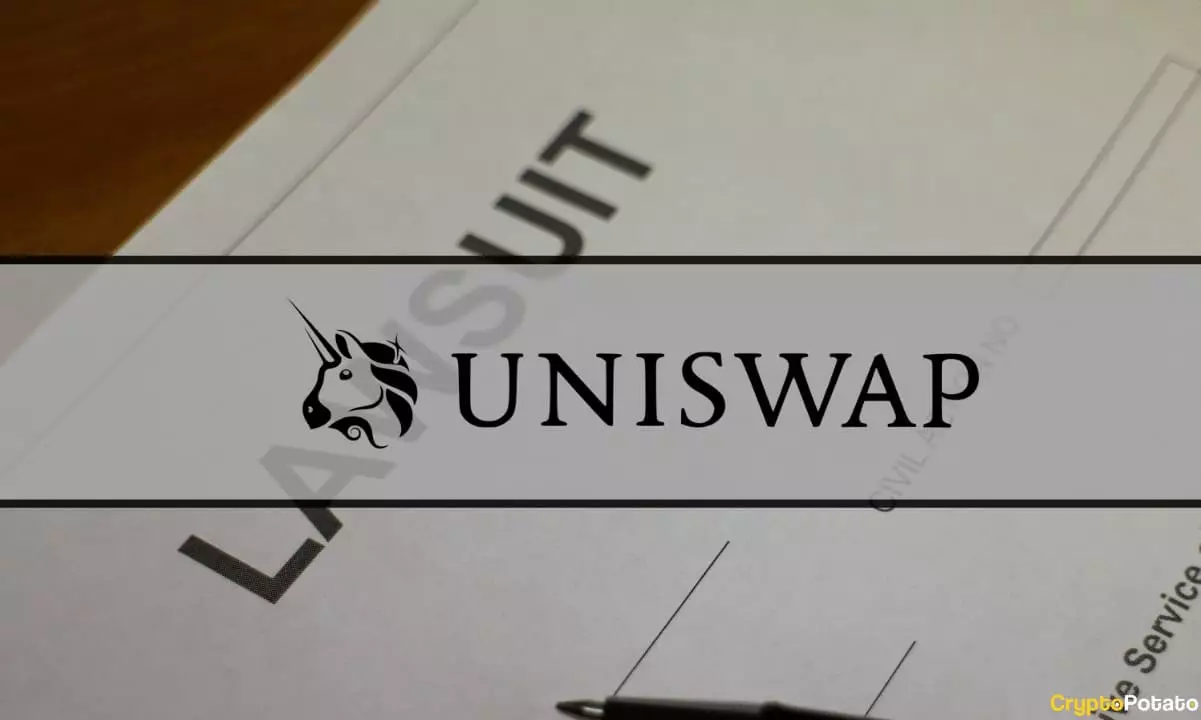In a move that showcases the U.S. Securities and Exchange Commission’s (SEC) continued crackdown on the crypto industry, the regulatory body has set its sights on Uniswap Labs, the company behind the world’s largest decentralized exchange (DEX). This recent development adds to increasing regulatory pressure on the decentralized finance (DeFi) sector, signaling potential challenges ahead for prominent players in the space.
Following the issuance of a Wells Notice by the SEC, Uniswap Labs publicly acknowledged the regulatory action and declared its readiness to defend itself against the allegations. The company emphasized that all Uniswap products and the Uniswap Protocol remain unaffected by the SEC’s scrutiny. This response underscores the company’s confidence in its adherence to regulatory standards and its dedication to maintaining the integrity of its decentralized platform.
While Uniswap Labs did not disclose the specific nature of the SEC’s potential litigation, previous actions by the regulatory agency offer insight into the possible grounds for scrutiny. The SEC’s history of targeting exchanges and projects for alleged securities violations raises questions about the status of tokens traded on the Uniswap platform. With the inclusion of a native token, UNI, in its ecosystem, Uniswap Labs faces potential legal challenges related to securities regulations.
In response to the SEC’s actions, Uniswap Labs has argued that the majority of assets traded on its platform do not qualify as securities, drawing parallels to the precedent set in the SEC v. Ripple case. The company maintains that its protocol and governance token do not meet the criteria outlined in the Howey Test, a key factor in determining whether an asset is considered a security. By positioning itself as a decentralized entity akin to Bitcoin and Ethereum, Uniswap Labs seeks to distance itself from traditional regulatory oversight.
Central to Uniswap Labs’ defense is the assertion that the decentralized nature of its exchange precludes SEC jurisdiction over its operations. The company contends that self-custodial, on-chain trading decisions fall outside the purview of current regulatory frameworks, highlighting the autonomy and distributed governance of the Uniswap ecosystem. By aligning itself with the ethos of decentralization embodied by leading cryptocurrency platforms, Uniswap Labs aims to safeguard its protocol from regulatory intervention.
The SEC’s scrutiny of Uniswap Labs underscores the evolving regulatory landscape facing the DeFi sector. As decentralized platforms navigate legal challenges and regulatory complexities, the outcome of this case will have broader implications for the future of decentralized finance. The clash between regulatory authorities and DeFi innovators like Uniswap Labs underscores the need for ongoing dialogue and collaboration to ensure the growth and sustainability of the crypto industry.

